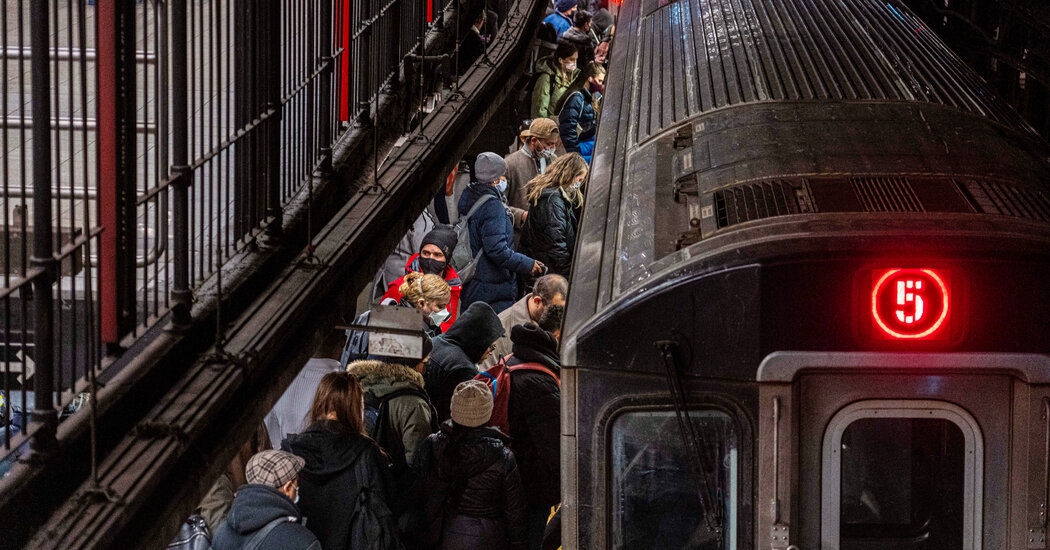N.Y.C. Subways, Buses and Taxis Are Still Requiring Masks
Riders are still required to wear masks while taking public transportation in New York City, despite a federal judge in Florida’s ruling on Monday to overturn the nationwide mask mandate on planes and public transit.
With the decision-making power left in the hands of local transit agencies, the Metropolitan Transportation Authority, which operates New York’s subway, bus and commuter-rail networks, doubled down on its mask requirement.
Tim Minton, a spokesman for the M.T.A., confirmed on Monday evening the mandate would remain in place, citing a March 2 decision by the New York state health commissioner, which noted the protections mask-wearing offers from transmitting the coronavirus, especially on public transportation.
The M.T.A. falls under state control, and Gov. Kathy Hochul voiced her support for keeping the mandate, while also emphasizing the importance of vaccinations and regular testing.
“Do your part to keep your neighbors safe,” she wrote on Twitter on Tuesday.
Tony Utano, the president of the Transport Workers Union Local 100, which represents subway and bus workers, said he backed the M.T.A.’s decision to “keep both riders and transit workers safe.”
The city’s Taxi & Limousine Commission, which oversees taxis and for-hire vehicles, including Ubers and Lyfts, said on Tuesday that they would still require drivers and riders in taxis and those ride-share vehicles to wear masks as well.
Uber had said on Tuesday that it would stop requiring masks in the United States, as airlines and other transportation companies relaxed Covid-related policies. Lyft followed with a similar announcement, but both companies said local regulations would supersede their own rules.
In neighboring New Jersey, Gov. Philip D. Murphy ended the mask mandate for New Jersey Transit.
New Yorkers riding the subway Tuesday morning largely welcomed the ongoing mask requirements. Joseph Gill, 58, said he was still afraid of bringing the virus home to his family, especially since he lives with his 85-year-old father, his immunocompromised wife and his three-year-old grandson, who is too young to get vaccinated.
Dropping mask requirements on public transportation now would be too risky, he said.
“Regardless of what they say, I want to protect my family,” Mr. Gill said as he waited for an uptown B or C train at the 72nd Street station in Manhattan. “I hate it, but I’m going to keep wearing it.”
Waiting for the G train in Williamsburg, Jingting Fang, 22, echoed that sentiment, saying that she felt safer when she saw people wearing masks on the subway.
The trains are often packed with crowds, she said, adding that she wanted to see more consequences enforced for those who don’t wear masks.
“Covid is still very much happening,” Ms. Fang said.
But some said they were confused by the dissonance between the country’s sudden rollback and the city’s mask guidance.
Juliet Peters, 33, who was also waiting for an uptown B or C train at 72nd Street, said masks were required when she flew to California to visit her family over the weekend. But when she got on the plane Tuesday to fly back to New York City, she was told masks were now optional.
“I was like, ‘What?’” she said. “I wasn’t sure about what to do.”
She wore her mask for the flight back anyway, and said she would continue to wear masks on the bus and subway. With the Omicron subvariant known as BA.2 on the rise and the possibility of more waves in the future, she said, wearing a mask is “more comfortable” for her.
Precious Fondren contributed reporting.
Check out our Latest News and Follow us at Facebook
Original Source







